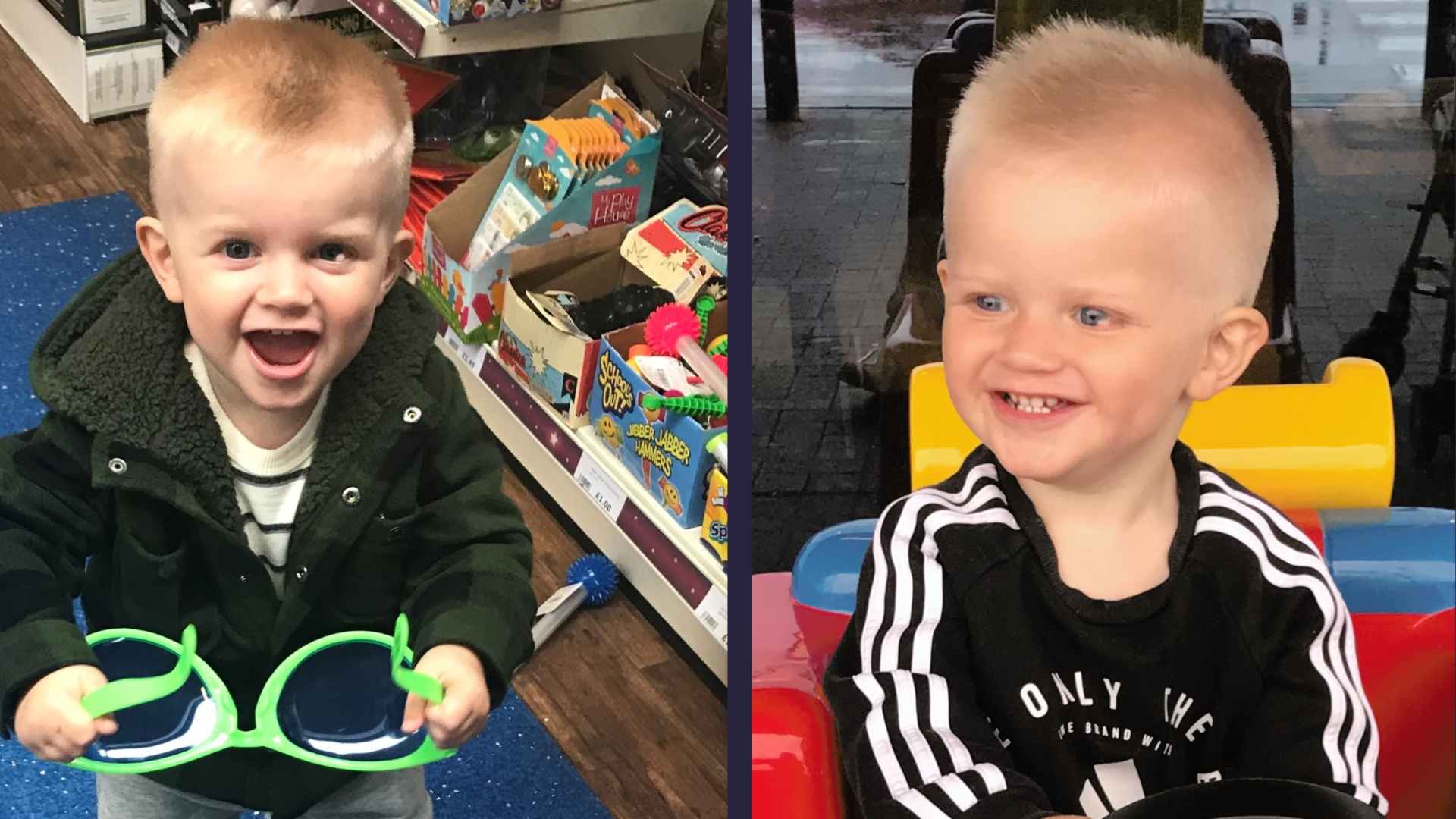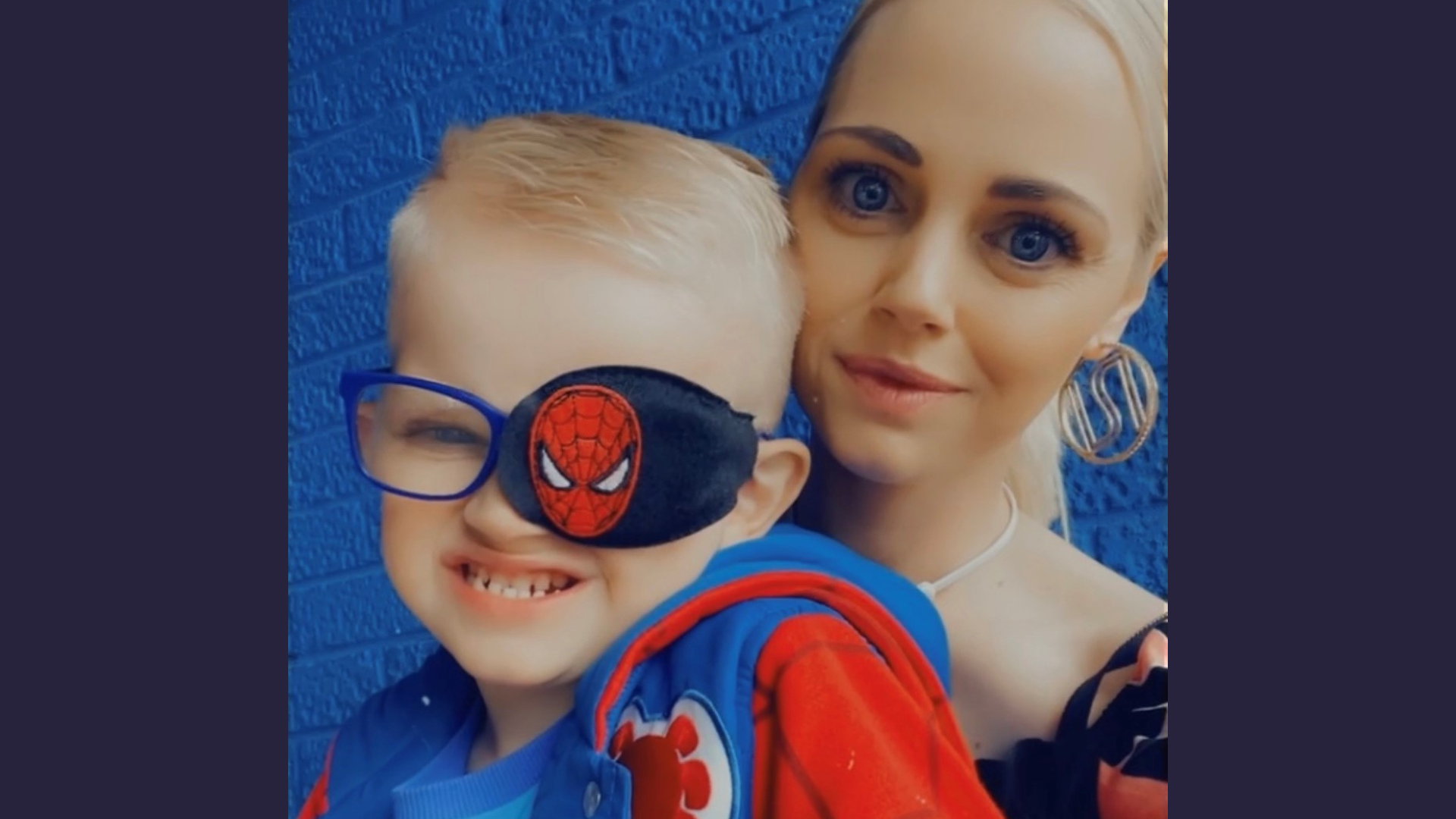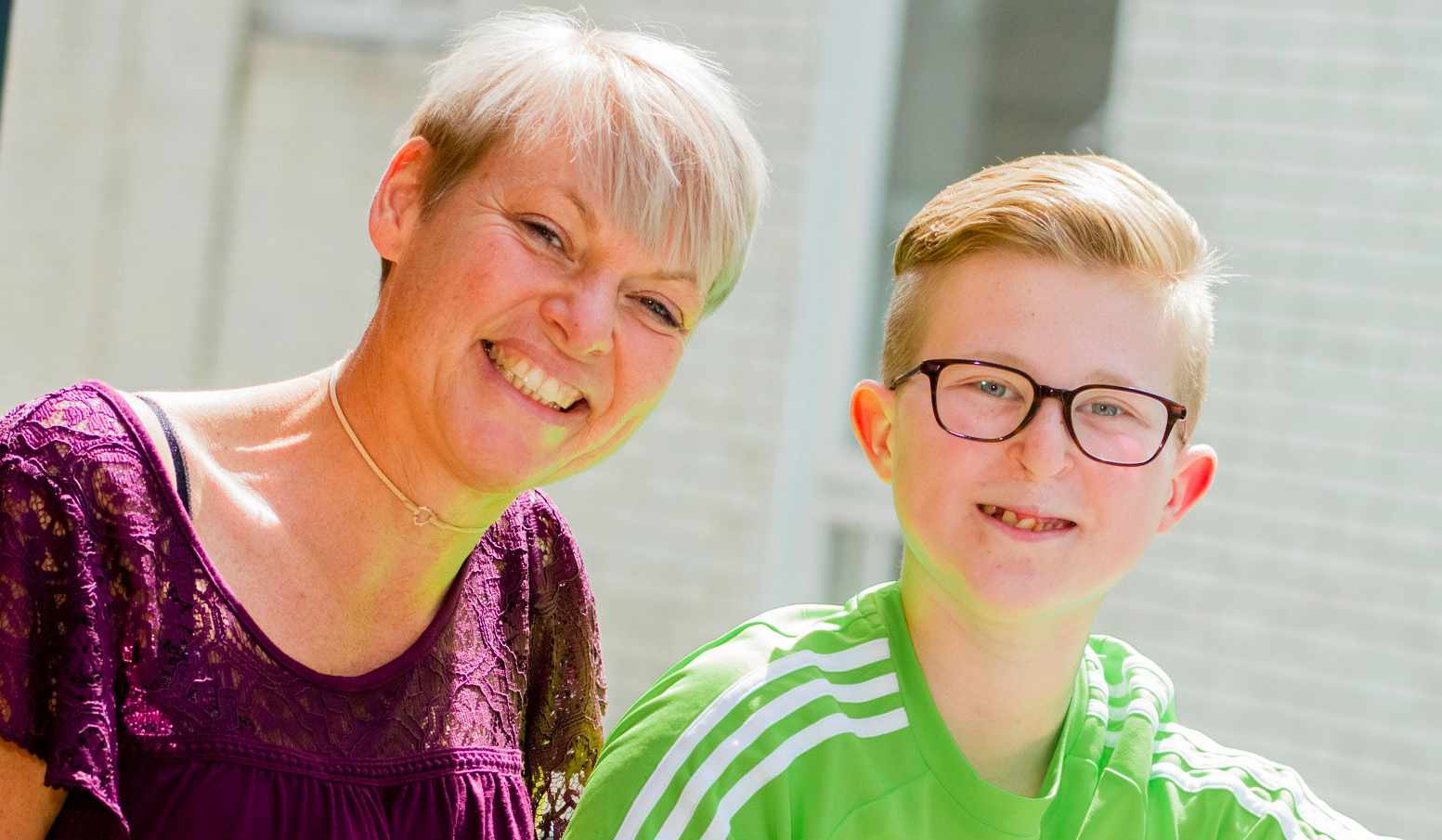The day my angel was born was bittersweet. It was the most amazing day of my life but at the same time, it was filled with so much worry.
Malachi was the most beautiful baby that I’d ever seen, with thick golden hair and beautiful olive skin. He was born with a dislocated hip and laryngomalacia, a congenital abnormality of the larynx, above the vocal cords, which causes noisy breathing. We also noticed a round lump on the white of his eye.
From birth, Malachi had many hospital appointments. We both came home after almost a week in hospital, and I struggled. I loved my angel more than anything from the moment I found out I was pregnant. But every time I looked at my son, I felt so much pain, questioning: “why my baby?”. I worried about his sight and was scared that the white lump could be cancer. I even worried about him being bullied as he got older, and not accepted for looking different.
Malachi would stop breathing sometimes when feeding and I’ve needed to call an ambulance. I never wanted to be alone with him because of this. I also dreaded changing his nappy and dressing him in case of hurting his dislocated hip. Thankfully, my mum and family have been hands-on and so supportive, particularly when I was recovering from my c-section.
When out in public, we would get stares and comments from strangers. I couldn’t even do a food shop without getting stopped.
It was hard when I came home, and family and friends came to visit Malachi. I felt like I needed to pretend I was happy, but I wasn’t, I was worried sick for my son, and guilty about not feeling happy. I think family and friends struggled with what to say to me. I got many comments that I found upsetting and dismissive, even though their intentions were good. Comments like: “You can’t tell there’s anything wrong with his eye,” and “some babies are born with much worse.” As a new, single mum bringing my son home with health problems and no diagnosis or explanation for any of them at that time, my mind and body could only think and feel worry. I felt isolated, and like no one understood.
During a difficult day, I got emotional with my health visitor, asking: “why does my baby have to suffer when I was so careful during my pregnancy?” She told me: “Because you will look after Malachi and do everything you can for him just like you did when you were pregnant. He needs a mummy just like you.”
This has always stuck with me, and I knew she was right. Over the years I have reached out to parents like myself, and this is something I always say to them, as we all seem to question: “Why my baby?”

When out in public, we would get stares and comments from strangers. I couldn’t even do a food shop without getting stopped. I’ve had all sorts of comments, like “what’s wrong with him?” “Is he blind?” “Was he born like that?” I’m shocked that adults think that this behaviour is okay. It made me worry about my son getting older and becoming aware of these comments. I didn’t want it to affect his confidence.
I felt helpless, knowing that I might not be able to protect him from noticing other people’s reactions. Even when I researched his condition online, I saw negative comments on photos of children like Malachi. As a parent, my son not being accepted because of his difference was my worst fear. I wasn’t emotionally strong enough at the time to put myself in the position to witness negative comments online about my son’s difference, so I didn’t show his face on social media.
Through Malachi’s healthcare appointments and treatments, nobody ever asked how I was coping. I think parents should be offered counselling support if a baby is born with health issues. I was lucky I had my family to help, and I can’t imagine what it’s like for single parents that don’t have support. More needs to be done to support people with the emotional impact of having a visible difference, or a child with one.
At two and a half, Malachi was diagnosed with Goldenhar’s syndrome, which explained his multiple health conditions that had all felt unrelated before.
The lump on his eye was a benign tumour linked to Goldenhar’s, that I was told wouldn’t grow. Unfortunately, it did grow, rapidly, and got closer to his pupil. When it got so big that he couldn’t close his eye, Malachi had surgery.
My hope is that my son’s story reaches out to people who don’t have a visible difference, so that they choose empathy and compassion before their own curiosity.
If the surgery had been done earlier it wouldn’t have been so invasive, and aftercare wouldn’t have been such a strain. It was a frustrating time for me. Plus, the aftercare was difficult and included nine eyedrops a day for six months. We had to restrain Malachi every time. This was horrible – and I felt like my son was losing his trust in me, which was heart-breaking for us all.
The surgery wasn’t successful the first time and further surgery and treatment was required. I was asked to make snap decisions about the options available. As a single parent, I found this so difficult. All responsibility was on me alone to make the right decision for my son.
Once we finally started to see improvements, I was grateful that it worked and that hopefully, because of Malachi’s journey, things will improve for future children like Malachi.
Since surgery, Malachi wears glasses and wears a patch for a few hours every day. When wearing his patch in public we still get comments from people. I don’t think people realise that every time they make a comment, they are reminding my son and me of all the trauma and surgeries he went through. I find it fascinating that some adults don’t think before making a comment if they see a child looking different.
When people share their stories and experiences, they usually do it in the hope to reach others like themselves. My hope is that my son’s story reaches out to people who don’t have a visible difference, so that they choose empathy and compassion before their own curiosity.
From the day my son was born it has been such a rollercoaster and not what I ever imagined motherhood to look like. I am so proud of Malachi. He’s the most beautiful, loving, strong little boy that I could ever wish for.
Malachi has additional diagnosis and we’re awaiting further test results. Hard times could still be ahead for us, but thanks to my son, I have become a resilient, driven, and empathetic person – all qualities that I am very grateful for. I see the world differently now, and most importantly he has taught me what really matters in life, which is love.

